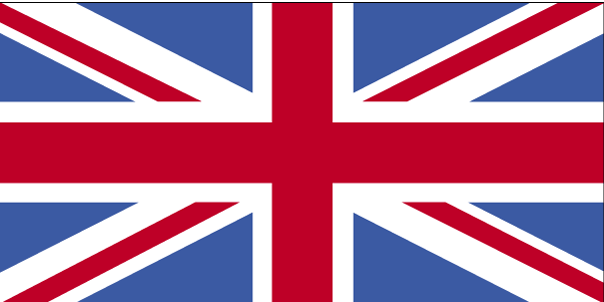Resolution #163
 |
The questions of ensuring healthy conditions in slums/refugee camps |
| Committee: SOCHUM | |
| Main Submitter: UK | |
| Submitted: 01/04/2022 16:58 |
| Status |
|---|
| Passed cosubmitter sheet validation |
| Approved by approval panel |
| Selected for debate by secretariat |
| Passed by committee (SOCHUM) |
Options
Co-submitters
Resolution
FORUM: SOCHUM
The QUESTION OF: Ensuring healthy conditions in slums/refugee camp
SUBMITTED BY: UK
SIGNATORIES: Bahrain, Botswana, Brazil, Egypt, Fiji, Ghana, Monaco, Poland, Ukraine, Yemen
THE SOCIAL, CULTURAL AND HUMANITARIAN COMMITTEE,
Defines a refugee as someone who has been forced to leave their country in order to escape war, persecution or natural disaster,
Further defines a refugee camp as temporary facilities built to provide immediate protection and assistance to people who have been forced to flee their homes due to war, persecution, natural disaster and other situations,
Notes that a slum is a highly populated urban residential area with poorly developed infrastructure associated with poverty,
Considers a refugee camp a temporary government mandated settlement for displaced refugees or persons in,
Deeply concerned that at least 1.6 billion people live in slums or informal settlements around the world, making up a quarter of the world's urban population,
Recognizing the work of the UN-Habitat committee for its work to improve human settlement financing systems by mobilizing and packaging domestic capital, public investment and community savings for slum upgrading,
Keeping in mind the incoming influx of Ukrainian refugees,
Bearing in mind that slums and refugee camps often carry infectious diseases, and every year millions die due to certain diseases that are in abundance in these areas, e.g., hypertension, diabetes, intentional and unintentional injuries, tuberculosis, rheumatic heart disease, and HIV infection,
1. Recommends enacting health check, overseen by the UN World Health Organisation for all refugees within a refugee camp by medical professionals, including but not limited to:
a. An immediate inspection for new arrivals into the camp
b. Regular checkups for pregnant women, in line with international guidelines set out by WHO;
2. Urges the implementation of health care benefiting the long term health of all persons in a refugee camp/ slum including services such as but not limited to:
a. all children, aged 6 months to 18 years, to have access to routine Expanded Programme on Immunization (EPI) services,
b. the provision of appropriate facilities for people who are ill to be able to take their medication in safety,
c. access to appropriate nutrition that may differ for both adults and children, ensuring that such nutrition is both age and culturally appropriate,
d. support for mental health and psychosocial to be made available to all refugees through the likes of prescribed medication and qualified therapists;
3. Calls for the creation of a new UN committee, the United Nations Committee for Slums and Refugee Camps (UNCSR) as a SOCHUM subsidiary body which would, but not limited to:
a. Manage and create schemes to help provide necessities for life to slum and refugee areas,
b. Provide a reliable, safe and abundant water source,
c. Set up donation systems to allow local communities to donate money and clothes for the improvement and renovation of slums,
d. Requests that all countries across the U.N. assist and work alongside the newly set up UNCSR to help create a better world for all humans to live in;
4. Strongly encourages the implementation of harsh jail sentences for people-smugglers who are filtering smuggle refugees into countries in unsafe and unsanitary conditions;
5. Suggests the development of a source, storage and distribution system with a sufficient amount of safe water including a reserve supply and spare capacity to meet any temporary difficulties and new arrivals;
6. Further recommends the provision of culturally appropriate and acceptable support interventions;
7. Endorses a biannual inspection carried out by the WHO to ensure the camp fulfill the basic sanitary and hygiene requirements is suitable for human habitation and appropriately provides for refugees' needs by including regular testing of water quality to prevent the spread of infectious diseases and harmful bacteria;
8. Further urges medical equipment and simple vaccine schemes be provided to slums and refugee camps to aid the prevention of loss of life:
a) Simple to use, yet efficient class 1 to class 3 medical devices should be provided, these would include bandages and simple tourniquet material for everyday injuries, pregnancy test kits, surgical gloves to prevent sepsis, and for emergency situations, such as cardiac events, simple to use medications and defibrillators should be accessible,
b) Classes provide information to women and men on HIV/AIDS risk and safer sex:
i) ensure the availability of feminine hygiene products, pain killers and other necessary medicines to be available for all women and girls in refugee camps to help them deal with their menstrual cycle
ii) Ensure that health professionals working in the area follow proper procedure when in close contact with refugees and their blood samples;
9. Calls upon member nation classes and courses to be held to educate refugees on topics such as but not limited to:
a) The language of their host country
b) How to maintain and manage their water and sanitary systems
c) Education in practical courses such as plumbing and education at a basic schooling level for children whose education was disrupted by displacement.
10. Further calls upon the addition of places of worship including but not limited to synagogues and mosques to ensure refugees have a place to pray and feel safe in time of struggle